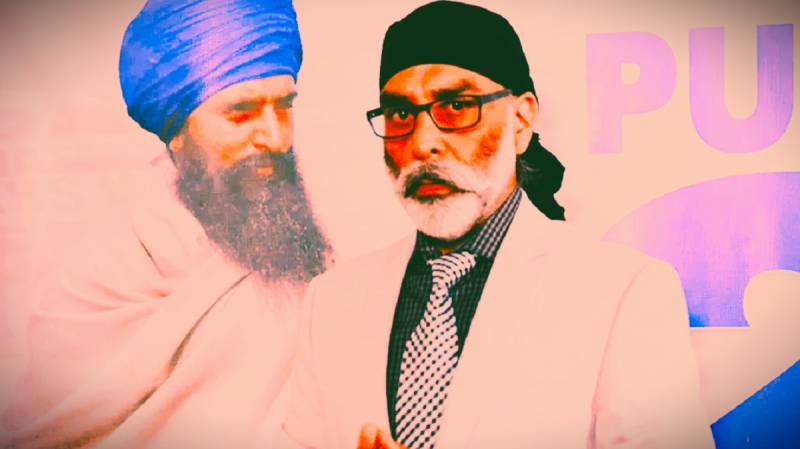
Following the assassination Khalistani leader Hardeep Singh Nijjar on Canadian soil, other Khalistani leaders have vowed to include New Delhi in their plans for the Sikh state.
Gurpatwant Singh Pannun, a prominent figure in the advocacy group Sikhs For Justice (SFJ) and a leader in the Khalistan Referendum Movement, which successfully culminated last year, has stressed their determination to include New Delhi in their plans to form a separate state for Sikhs, Khalistan.
He asserted that the Sikh community worldwide will not let Nijjar's martyrdom go in vain.
Nijjar had been assassinated in his car in the parking lot outside a Gurudwara in Surrey, a suburb of the Canadian province of Vancouver. Last month, Canadian Prime Minister Justin Trudeau kicked up a diplomatic storm with India by accusing New Delhi of orchestrating the assassination on Canadian soil. A tit-for-tat expulsion of diplomats followed as the row worsened.
"Sikhs in Indian Punjab and around the world will defeat India with the power of the vote," Pannun stated in an exclusive interview.
He alleged that the Indian government is actively working to suppress their cause.
A Peaceful Approach
Despite the gravity of their demands, Pannun underlined that Sikhs are intrinsically a peace-loving community and intend to counter what they perceive as Indian terrorism with the power of democracy.
This commitment to non-violence, he explained, has been a central tenet of their decades-old movement.
Khalistan's Proposed Boundaries
Pannun disclosed that their vision of a free Khalistan includes regions which currently fall within the geographical boundaries of the state of India. It includes areas such as Himachal Pradesh, Haryana in Indian Punjab, and parts of Uttar Pradesh and Rajasthan.
He vehemently denied any connection between Khalistan and Pakistan's Punjab, dismissing Indian media's claims as baseless propaganda.
Some Khalistan activists also include parts of Pakistan Punjab, large parts of which were dominated by the Sikhs before the Partition. In particular, their holy places in Nankana Sahib and Hasan Abdal.
Allegations of Espionage
Pannun also accused the Indian government of establishing an elaborate espionage network to spy on and target Khalistani leaders.
He expressed defiance in the face of perceived threats from the Indian government led by right-wing Prime Minister Narendra Modi and the Indian media.
"The Modi government and Indian media are threatening us every single day, but they cannot scare us."
International Involvement
Pannun asserted that Canadian Prime Minister Justin Trudeau's stance on the issue had unmasked the true nature of the Indian government.
He called upon world powers to hold India accountable for its actions.
United Nations Involvement
Pannun, who oversaw last year's global referendum from Sikhs living outside of India, said that results from the Khalistan Referendum will be shared with the United Nations once they are compiled.
These developments, together with escalating tensions between India and Canada, as both countries grapple with the complex issue of Khalistan, have raised concerns amongst the Sikh community.
Meanwhile, Indian Foreign Minister Subrahmanyam Jaishankar confirmed that he had engaged in discussions regarding the ongoing row between India and Canada over the killing of Canadian Sikh leader Hardeep Singh Nijjar, during his recent visit to Washington, DC.
During his visit to the United States this week, Jaishankar held talks with top US officials, including US Secretary of State Antony Blinken and US National Security Adviser Jake Sullivan. In these meetings, Jaishankar presented India's concerns regarding Sikh separatist movement supporters residing in Canada.
Jaishankar's discussions in Washington mark a significant development in the ongoing diplomatic dispute, as it suggests that India is actively seeking to address the matter internationally.
Talks between Indian and US officials are expected to shape the future trajectory of relations between Ottawa, New Delhi and Washington in light of this sensitive issue.

